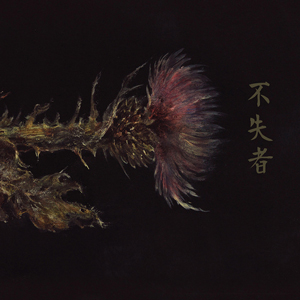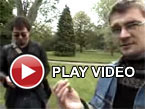Fushitsusha, "Nothing Changes No One Can Change Anything, I Am Ever-Changing Only You Can Change Yourself"
 Capturing a single performance between these two titans of improvised music, labeling this three-plus hour set as "intense" would be doing it a disservice. Recorded in 1996, after Keiji Haino and Peter Brötzmann had worked together in the studio setting some time prior, so the two artists had some previous interactions to build from. Here augmented by the full Fushitsusha trio of Yasushi Ozawa and Jun Kosugi, it all comes together with a primal intensity few can match, and well up there with the best moments in both artists’ catalogues.
Capturing a single performance between these two titans of improvised music, labeling this three-plus hour set as "intense" would be doing it a disservice. Recorded in 1996, after Keiji Haino and Peter Brötzmann had worked together in the studio setting some time prior, so the two artists had some previous interactions to build from. Here augmented by the full Fushitsusha trio of Yasushi Ozawa and Jun Kosugi, it all comes together with a primal intensity few can match, and well up there with the best moments in both artists’ catalogues.
Like many (dumb) kids, I grew up deriding jazz as boring music for boring people, the world inhabited by people like Branford Marsalis and Kenny G.It was not until I received a dubbed copy of the Peter Brötzmann Octet’s Machine Gun that I reconsidered the possibilities that it could be something that I enjoyed, and while my tastes still stick to the more chaotic free jazz end of the spectrum, it was still a development for me, and one of the reasons why Brötzmann’s work always holds a special place in my heart.
To be fair, some of the groundwork had already been laid for me via bands such as God and Painkiller, the latter of which featured Haino in a few of their recordings.Had I heard this performance some 18 years ago (when I was still at the prime "jazz sucks" age), it would have likely pushed me a bit more close to jazz acceptance.Disc one begins with a series of erratic, trashy sounding snare drums and chiming bells, providing a pseudo mystical, spiritual introduction to what will come.After a few rushes of cymbals the band pares back to just return lead by a brilliantly distorted bass guitar.When the full band finally launches in, it is a full on drum pounding, sharp and monstrous roar that tenses and relaxes, lead by Haino's distinctive voice.
Brötzmann's contributions do not become prominent until the second disc, squealing through rumbling bass and hurdy-gurdy drone.The full quartet lock into a hellish expanse of sound that just gets louder and louder, with Haino’s vocals becoming more and more frightening.Moving towards a jerky stop/start structure lead by Brötzmann’s sax and beginning a duet with Haino’s guitar, the performance turns deliciously harsh.Both of these artists built much of their careers on an extreme, idiosyncratic approach to playing their respective instruments, and as such the two of them together playing in unison is simply transcendent.The performance surprisingly drops back to a more restrained, overtly jazzy sounding piece with muted horn and piano before ending the second hour with a nice blast.
The third disc leads off softly, at first propelled by unconventional sounding percussion, ambient horn and droning bass, until screamed voices from Haino leads things into a ritualistic direction.Functioning nicely as the calm before the (expected) storm, the players stay somewhat relaxed before building the performance in intensity and density.Everyone finally erupts into a brilliantly lurching psych rock outburst, not entirely unconventional but played with a force and intensity few could hope to match.The closing minutes drift into utter chaos and back again, wonderfully coming apart as the conclusion gets ever closer.
I am rather surprised that this gem has remained unreleased for nearly two decades, given that both Peter Brötzmann and Fushitsusha have a strong following and have had the support since prior to this performance.Regardless of that, Nothing Changes measures up to expectations based upon the players, and also apparently represents the first full length, commercially available Fushitsusha performance, and it is an exceptional one at that.
[note:song titles listed for samples are best guesses, each disc is indexed as a single track]
samples:
- Ango (1996 Version-Entering into Depths where Meaning Cannot Exist
- Layer upon Layer of Missing Answers, Swirl in Circles Speaking to Me "Still You Ask Why?" They Say
- Nattanjanai-Akin to This
 



